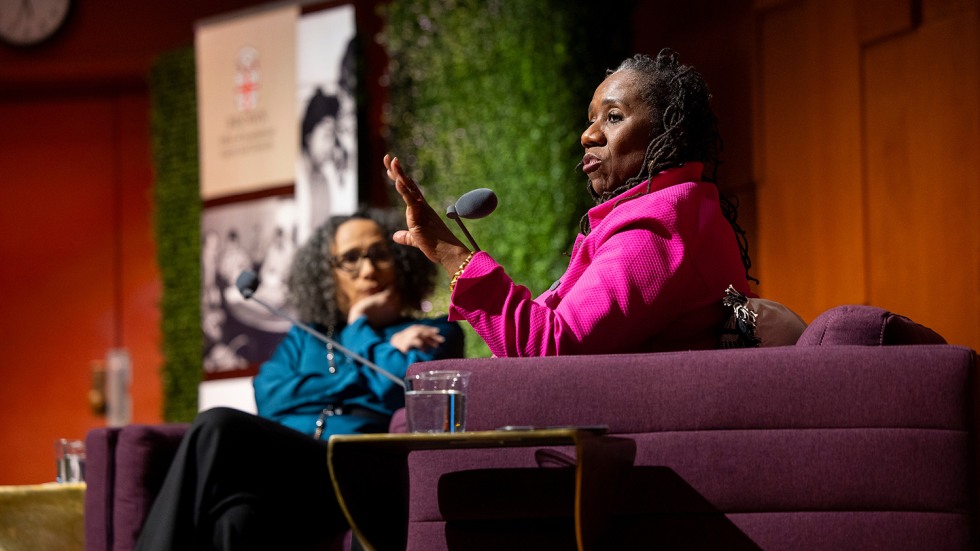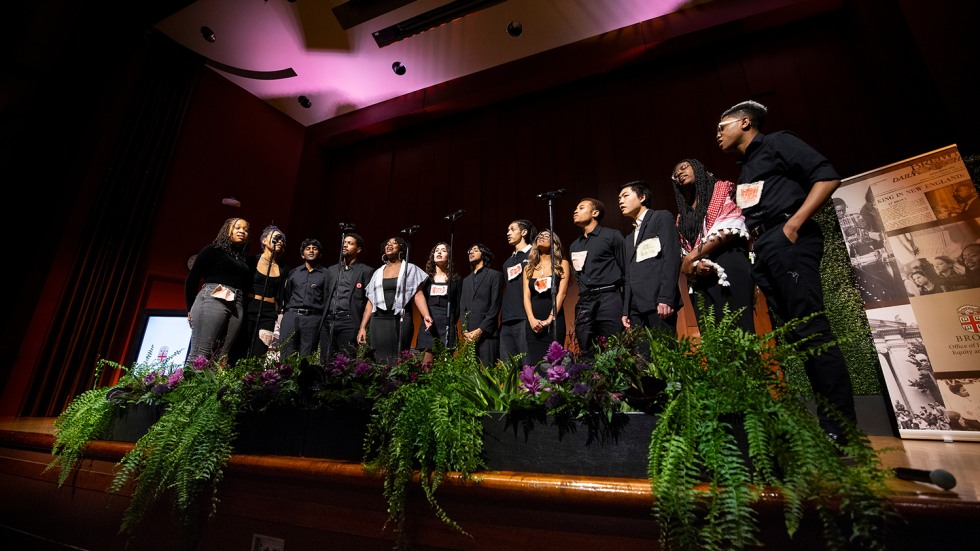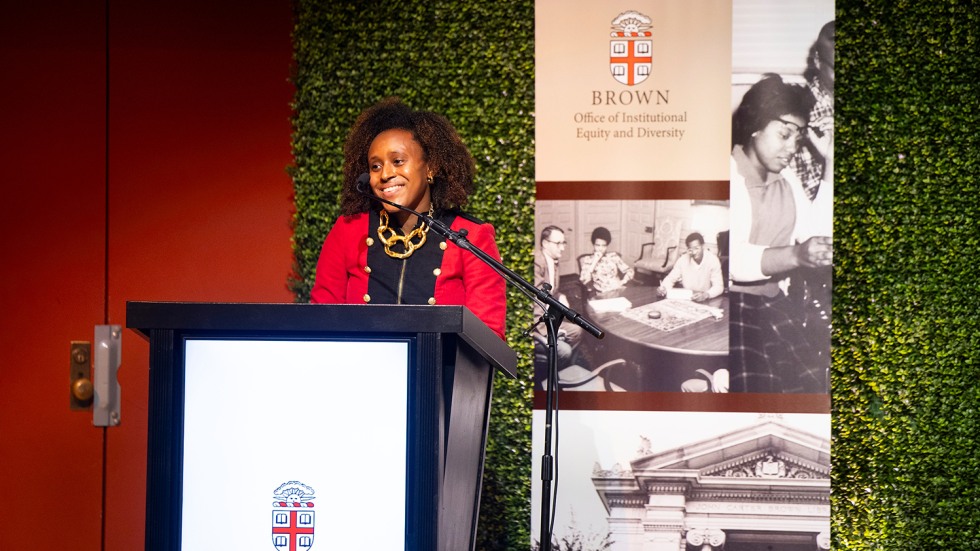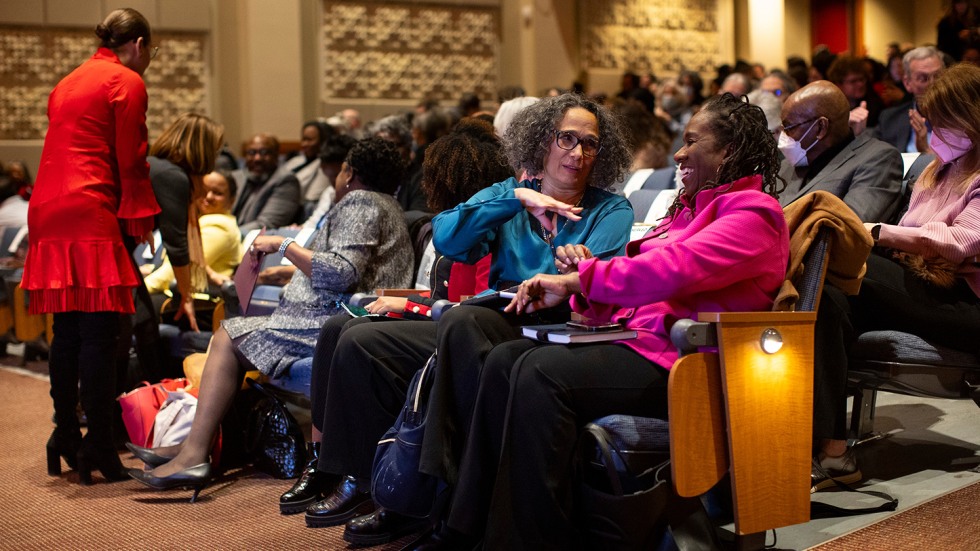PROVIDENCE, R.I. [Brown University] — Sherrilyn Ifill believes in nostalgia when it comes to things like 1970s and 1990s R&B music — but there is no place for nostalgia when it comes to the nation’s democracy.
“I only have an incredible passion and desire and belief that we can do better,” Ifill said. “And that the greatest opportunity to create something new is when what was old is unraveling.”
Before a packed house in Brown’s Salomon Center for Teaching, Ifill delivered the University’s 2024 Martin Luther King Jr. Lecture on Thursday, Feb. 15, with a talk titled “Reimagining a New American Democracy.” The former president of the NAACP Legal Defense Fund shared insights on the U.S. Constitution and the history of the 14th Amendment, the importance of local civic engagement, and the role that colleges and universities play in “carrying forward the democracy project.”
“We’ve run out of runway on the democracy that we’ve lived under, that I grew up under,” Ifill said. “And now it’s time for something new and fresh. It may not feel good, but I believe this is the citizenship that is required of us in this moment.”
While she eschewed nostalgia for previous political administrations, Ifill said it’s critical to understand the nation’s history to understand what the current moment requires. And conveying that is part of her charge in her new role as a faculty member at Howard University, where she is working to launch the 14th Amendment Center for Law and Democracy. She drew a parallel between the post-Reconstruction period during which the 14th Amendment was created, and today — noting that the nation faced a “democratic crisis” at both points.
“Many of us in this room were not taught about this period as the second founding of this country, but it most surely was,” Ifill said of the 1860s and 1870s. “So I encourage us to think about this moment and the possibility that we can be founding a new America — that this moment of crisis, on the other side of it, is the opportunity to create the country we really want.”
Section 3 of the 14th Amendment is at the center of the case before the U.S. Supreme Court, Trump v. Anderson, asking whether Colorado’s highest court was right to remove former President Donald Trump from the ballot because of his role in the Jan. 6, 2021, insurrection. It’s a case for which Ifill has filed an amicus brief with the court, arguing that “Section 3 was enacted for such a time as this.”



